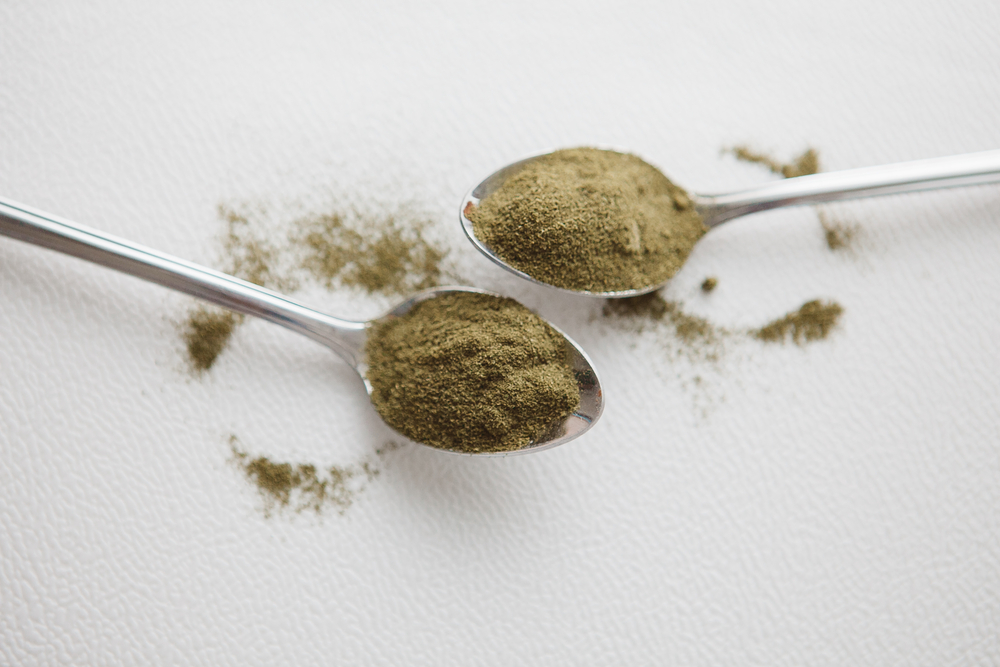
Nature’s healthiest foods are abundant—sprouting from sprawling fields, lush forests, and open pastures. Leafy greens aren’t always found on land, however—nor are they always green.
Kelp: The Secret Supplement
The Oceanic Plant with Awesome Potential
We’re talking kelp: the underwater, nutrient-dense plant health gurus have come to love. When we think about kelp, we tend to think of seaweed—whether it’s served up steamed or dished out slimy.
Indeed, kelp is a large, brown algae—but it isn’t tough to stomach. On the contrary, it’s incredibly tasty.
There are over 30 types of kelp—each of which grows in saltwater. While most kelp comes from the ocean, it isn’t rare to see abundant patches growing in brackish water—such as in intercostals. Because kelp grows in relatively shallow areas, it’s easily harvested. In most cases, kelp patches are incredibly dense—appearing as miniature, water-bound forests.
Nutritious at the Core
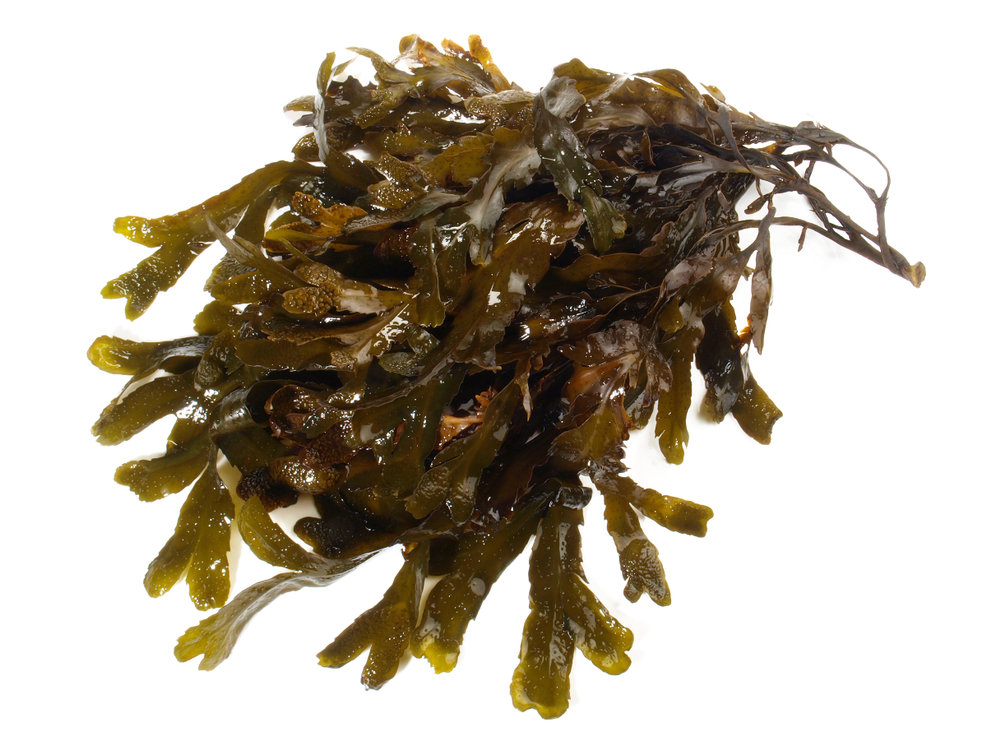
Kelp plays an incredibly important part of underwater ecosystems, providing shelter and nourishment for fish—and even mammals. As one of the world’s fastest-growing plants, kelp patches can expand more than 300 feet in a single year. It’s often called the ‘superfood of the sea’ due to its hefty supply of ecosystem nutrients—and for its use in kelp supplements for humans.
The Big Benefits of a Little Kelp
So, what makes kelp such a healthy dish?
Primarily, it’s a great source of potassium, iron, iodine, magnesium, and calcium. Depending on how kelp is cooked, its nutrition values might differ. Make no mistake, however, as kelp tends to retain most of its minerals nonetheless.
Because kelp offers a healthy supply of magnesium and calcium, it directly promotes muscle and bone health. It’s frequently used in Chinese and Japanese dishes as a fiber supplement as well. Whether it’s consumed as a steamed appetizer or as a main course condiment, kelp alone can account for a majority of a given dish’s nutritional value.
A little kelp goes a long way—especially when its other benefits come into play. Let’s check them out.
Benefit One: Inflammation Reduction
Few foods can directly reduce inflammation like kelp can. Inflammation, itself, is the body’s primary healing response to injury. Swelling protects the body from foreign elements that might be encountered after an injury has occurred—making it an important bodily function. This said swelling can certainly become troublesome if it lasts too long.
Swelling can cause chronic diseases, as the body’s triggered inflammation response might attack healthy tissues. In severe cases, this can cause autoimmune diseases—causing permanent, and persistent, damage to one’s body.
Oddly, consuming kelp is proven to reduce inflammation. Research conducted on inflamed mice reported significant reductions in swelling following a kelp-centric diet. Other studies similarly purport this effect in human beings—supporting the use of kelp supplements as both an answer to inflammation and chronic health concerns alike.
Benefit Two: Weight Loss
Green foods are well-known for their use in weight-loss diets, but kelp brings a unique trait to the dinner table: It delays hunger. Kelp’s high fiber content slows down the digestive process—keeping the stomach fuller for longer periods of time.
When our stomachs are full, we’re far less hungry. We’re also less susceptible to sugary urges.
Kelp diets have been used to treat obesity: Scientists have focused on a specific, kelp-based recipe in recent years suggested to positively impact weight loss significantly. This recipe is called Xanthegin. It’s a combination of brown marine sea kelp and pomegranate seed oil. Not only is Xanthegin tasty, but it’s also known to enhance liver function. In doing so, it reduces the liver’s fat content—further aiding the weight loss process.
In weight loss studies focused on kelp’s impacts, researchers found that kelp inhibits the gut’s fat absorption by as much as 75 percent.
In response to these findings, health scientists have urged its inclusion into foods like yogurt—so as to pair kelp’s stomach-based benefits with the stomach-healthy qualities yogurt provides.
Benefit Three: Vitamin K
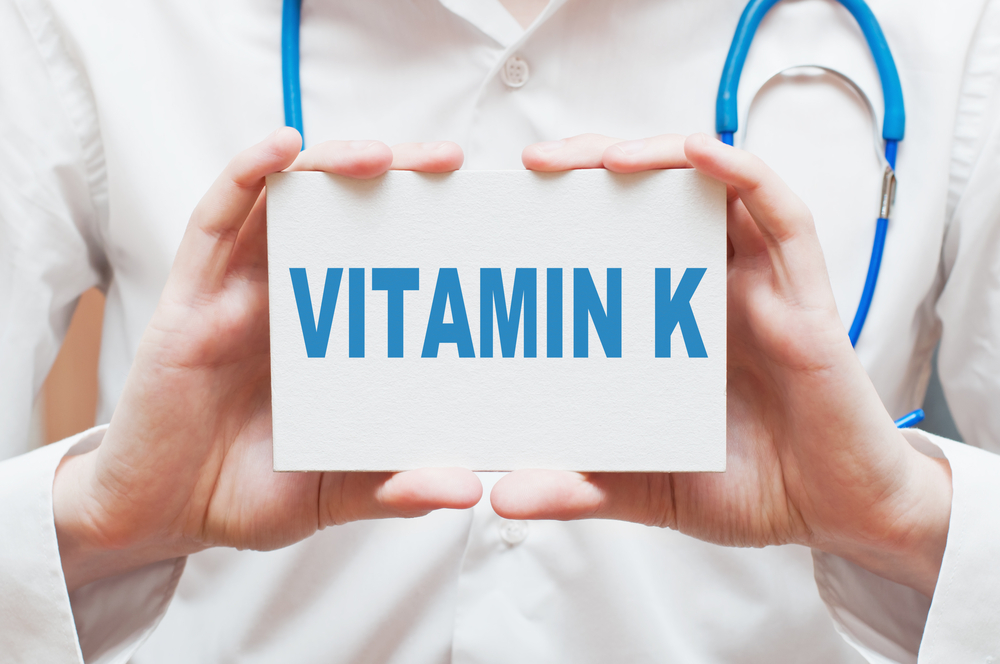
Kelp might be rich in minerals, but it’s also rich in vitamins. A healthy serving of kelp offers vitamin A, vitamin B-12 and vitamin K. Vitamin k are particularly beneficial to the body, as it aids its bone metabolism. It also produces the protein required for blood clotting—making it a popular dietary choice among the elderly.
As if vitamin K wasn’t already great, it’s chief health benefit is that of eye health. Vitamin K regulates the immune system, too, keeping our eyes well-defended against harmful bacteria. Simultaneously, it helps maintain healthy functions across the kidneys, heart, and lungs.
Benefit Four: Diabetes Prevention
Powdered kelp supplements are known to reduce sugar levels, making them excellent dietary inclusions for those at risk for diabetes. Additionally, powdered kelp is reported to decrease post-meal serum lipid—or fatty acid—levels. These dietary supplements can also be taken to boost one’s HDL levels—and doing so can help prevent heart diseases associated with diabetes.
The healthy impacts kelp has on those who are insulin resistant can’t be understood—particularly when kelp’s anti-inflammatory properties are considered.
Kelp is a good source of vanadium, too, which can further aid one’s efforts to reduce cholesterol levels. These effects have no major side effects—making kelp a viable long-term dietary solution for weight loss, heart health, and more.
Benefit Five: Cancer Prevention
While nothing replaces medical intervention for treating cancer, kelp supplements are suggested to provide some assistance to those at risk. In a study of 15 postmenopausal women—10 of whom being breast cancer survivors—those who supplemented brown kelp for three months reportedly showed up to a 50 percent decrease in breast-cancer biomarkers.
Scientists suggest that kelp’s fucoidan, a key component of seaweed and kelp alike, might contain some key benefits in battling tumor growth.
In several mice studies, scientists found reduced tumor growth rates in mice frequently given fucoidan injections. While official statements pertaining to kelp’s impact on cancerous cells don’t make any claims, we might see an interesting evolution of kelp supplements in the near future.
Benefit Six: Cognitive Health
It’s suggested that regular kelp consumption can help protect brain cells from cellular death—particularly in scientific models surrounding Parkinson’s disease. Much like kelp’s suggested anti-cancer properties, these benefits are still proposed—as opposed to entirely factual.
Despite this, vitamin K is considered to benefit cognitive health due to its immune-based benefits.
In general, kelp’s use as a protein-building aid can promote a better sense of wellbeing. The antioxidant aspects of kelp’s fucoidan are confirmed to exist—and some kelp supplements have been designed to provide these benefits to immunocompromised individuals.
The Best Ways to Use Kelp
Sea kelp has become quite popular—both due to its health benefits and taste. While brown seaweed might not seem appetizing at first, it can be mixed and matched with other ingredients to be tasty. Kelp noodle salad, for instance, goes great alongside a crunchy snack like popcorn.
Kelp can also be mixed with coconut oil, sea salt, and a little ghee as a filling, afternoon meal.
Understandably, a lot of people simply want to consume kelp for its health benefits—rather than its taste. In such cases, they can take daily kelp supplements. These supplements offer all of the nutrients of raw kelp—and, often, even more.
As a Powder
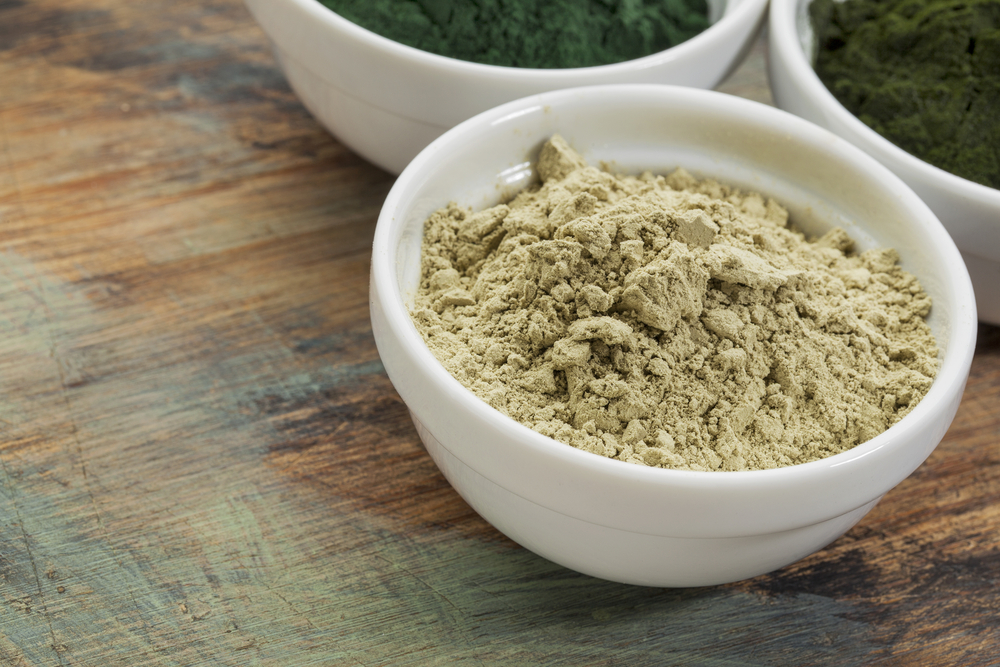
Kelp supplements usually come in powdered form. While some kelp supplements are mixed into health drinks, others exist in capsule form. Both types of kelp supplements are effective—and both tend to be pretty convenient to consume in general.
More often than not, these kelp supplements offer an extra helping of kelp’s most valuable nutrients—making them ideal for those seeking kelp’s health benefits, solely.
For those with busy day-to-day schedules, consuming kelp as a powder-mixed drink might be better. Kelp powder is simply digested faster when the stomach doesn’t need to dissolve a gelatin pill capsule. This said, gelatin pills are still safe to consume—and they’re also more convenient to travel with.
As a Skincare Product
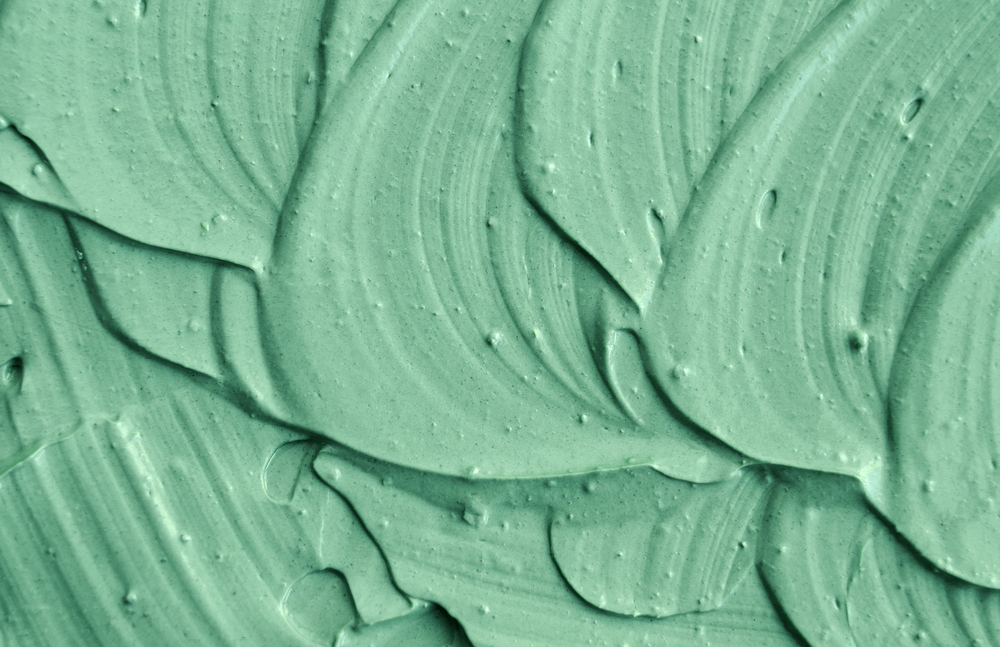
Even though kelp is commonly consumed, it’s also a healthy skincare application. Brown algae have a number of skin benefits, as it’s packed with antioxidants. When applied as a topical cream, it can reduce swelling, redness, and even pain.
Kelp is also a popular ingredient in moisturizers, and it’s considered to be a high-quality industrial thickener. So, if you enjoy browsing new skincare solutions, kelp just might be what you were looking for—especially if you have dry skin.
Most of the kelp’s skin-related benefits can be attributed to its high levels of iodine. Antioxidant-rich, iodine is commonly used in skincare products to soften, hydrate, and soothe the skin. It’s also largely responsible for kelp’s anti-blemish properties, banishing toxins while reducing any swollen surfaces.
As an Anti-Aging Solution
Whether consumed or worn, kelp is one of nature’s best anti-aging plants. A majority of premature aging impacts stem from external factors—like UV rays.
Kelp’s anti-oxidant properties quell these effects, buffering the skin from damaging encounters.
This isn’t to say kelp needs to be applied topically, however. Taking kelp supplements has similar effects, protecting the body from within. From daily pollution to hot summers, skin-damaging encounters needn’t be so severe: Kelp’s immune system benefits can protect us prior to encountering these aggressors—and its regenerative properties help our bodies heal naturally, soon after.
Enjoying The Kelp-Based Lifestyle
From inflammation reduction to disease prevention, and as a UV protector and moisturizer, kelp is considered by many to be a miracle plant. As studies surrounding kelp grow in number, scientists are beginning to acknowledge the incredible benefits of sea vegetables in general. Brown kelp has gained plenty of traction, as it is—paving the waterway towards a widespread appreciation of oceanic plants.
In the future, we may very well see the rise of medically supported preventative diets based on kelp. Already, health providers are exploring the ways kelp’s flavonoids and carotenoids can combat the free radicals which spawn diseases. The benefits of kelp-based iodine, too, are gaining significant attention—proposing numerous solutions in the world of cosmetology.
A dietary lifestyle based entirely on kelp isn’t very feasible, but supplementing your day with nature’s healing nutrients is never a bad idea.
If you’ve never tried kelp as a dish—we totally suggest taking the plunge.
It’s incredibly versatile, so you can pair it with some of your favorite snacks. If you don’t know where to start in terms of recipes, just keep a lookout the next time you visit a restaurant. You’d be surprised how many common appetizers have a little kelp in them.
Conclusion
In any event, a kelp supplement might be up your alley if you’re looking for a daily wellness boost. Kelp powder is incredibly affordable, and it’s frequently included in plant-based shakes. So, the next time you visit your local vitamin store, ask around for something sea-based. Kelp is normally supplied in its natural form—even if it’s been ground into a powder. With minimal effort and some dietary exploration, you can give your body a dose of natural remedies.
-Terry Asher
Terry Asher
Latest posts by Terry Asher (see all)
- Better Family – Product Review Liquid Daily 2 oz - Dec 16, 2024
- Post-Workout Recovery: The Key to Optimal Performance - Nov 25, 2024
- Pre-Workout Supplements – Everything You Need To Know - Nov 18, 2024






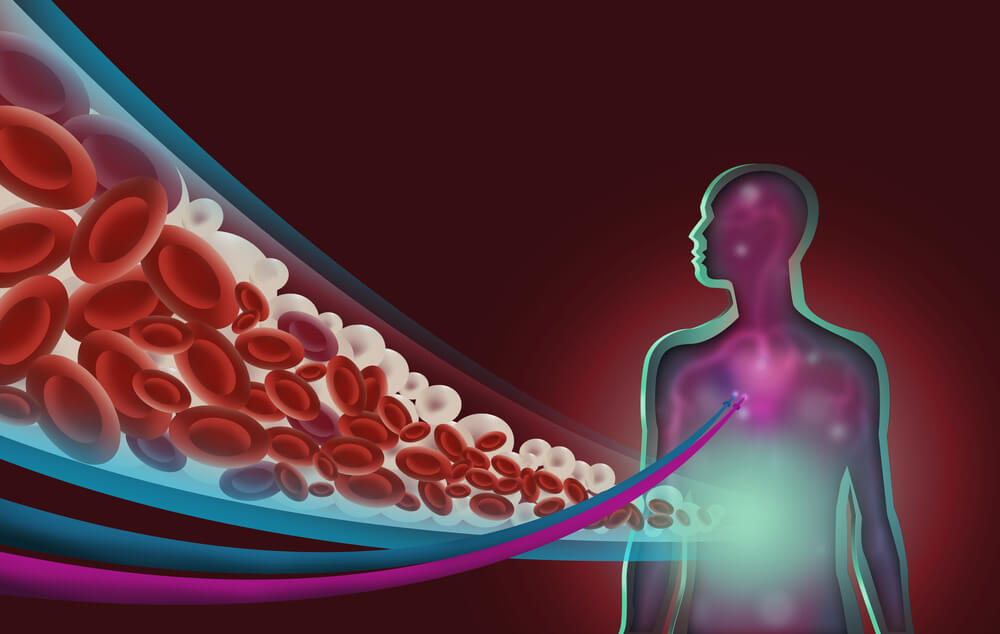





[…] Source link […]
[…] Source link […]
[…] Read The Entire Article By Terry Asher Here. […]